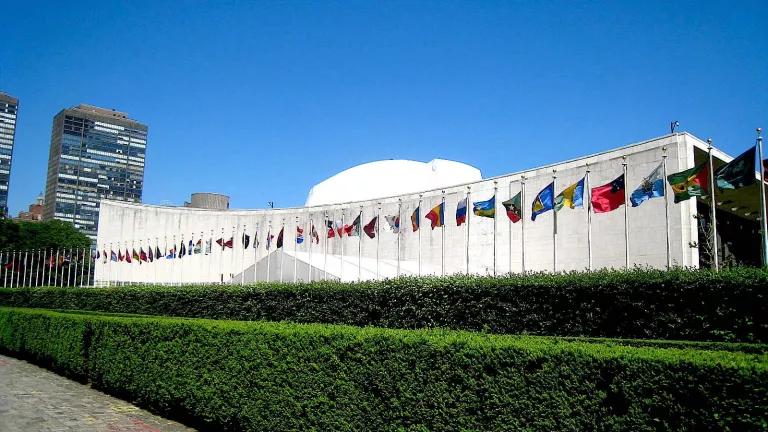Bold Action Is Needed for Climate and Nature Protection
Tackling the Twin Climate & Biodiversity Crises

The coming year is a testing ground for whether we can move past business as usual to strong action when it comes to protecting our communities and nature in the face of climate change and other destructive forces. Our leaders’ legacy will be determined by the actions we take now. This is a time to act boldly, and to act quickly. Scientists are sounding the alarm and our children are taking to the streets to call us out on our inaction.
It is clearer now than ever before that to tackle the climate crisis, we need to protect nature. And to avoid a mass extinction of wildlife, we need to stem the climate crisis. Decisions leaders will make over the coming months in these two interrelated areas will set the course for our future—and that of the plants and creatures of our shared planet. We need both for dramatic reductions in climate pollution as well as far-reaching protection efforts—starting with at least 30% of the earth’s lands and 30% of oceans by 2030.
This has been a year of alarming scientific assessments of just how destructive to people and nature our current path is.
- The Intergovernmental Panel on Climate Change (IPCC) special report, Global Warming of 1.5 degrees Celsius, warned that we need rapid action to stave off the worst climate impacts, and that every fraction of a degree of warming has grave consequences for people and nature.
- The world’s leading biodiversity scientists issued a clarion warning that we need to protect nature, or nature will stop protecting us in frightening ways with as many as one million species in danger of extinction if we continue on our current destructive path.
- The IPCC further warned in a report on climate and lands that governments and corporations must move away from business-as-usual to transform the way we use land on a global scale, and allow the land itself to help us draw down carbon pollution.
- A new report warned of the crisis just in bird communities, showing a 30% decline in birds in North America since the 1970s. The authors rightly noted that a crisis for birds is a crisis for us all.
- An IPCC report, released this week, on the connection between climate, oceans and ice will next provide a further wake-up call that oceans are taking the heat for climate change and are in deep trouble.
These scientific assessments are providing a profound wakeup call to us all. The call is especially resonating with young people. The young are often more clear-eyed: they see the scientific imperative for swift action and have no time for stale talking points meant to delay or obscure the path forward. We have no excuse to do less.
Speaking to world leaders at the Climate Action Summit this week in New York, youth climate strike organizer Greta Thunberg made a stark and very accurate accusation that we are failing our young people, communities, and ecosystems around the world as we delay taking rapid and meaningful action to curb climate change.
It is not too late to avert the twin climate and biodiversity catastrophes. We know what we need to do. We need rapid and meaningful actions to stop fueling our electricity and transportation with coal, oil and gas and instead turn to solar, wind and energy efficiency. We need to protect our forests, soils and oceans as climate solutions as well as for their intrinsic value. And we need to put in place policies to protect communities and nature from the harm that climate change is causing—to protect human lives and ecosystems.
We have opportunities as our cities, states and national governments take action. We have opportunities as countries meet this coming year to build stronger international frameworks. Through the Climate Change Convention, countries should be challenging each other to much stronger national commitments in the face of climate change. Through the Convention on Biological Diversity, countries should make the commitment to protect at least 30% of the world’s lands and 30% of the world’s oceans by 2030.
Now is the time for leaders to act in accordance with the gravity of the challenges. The decisions unfolding now will determine our future, our children’s future and the future of life as we know it on Earth.



